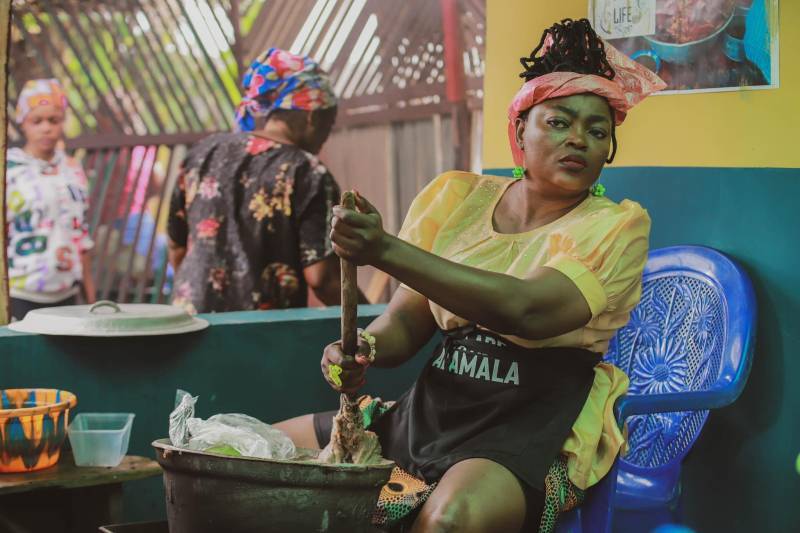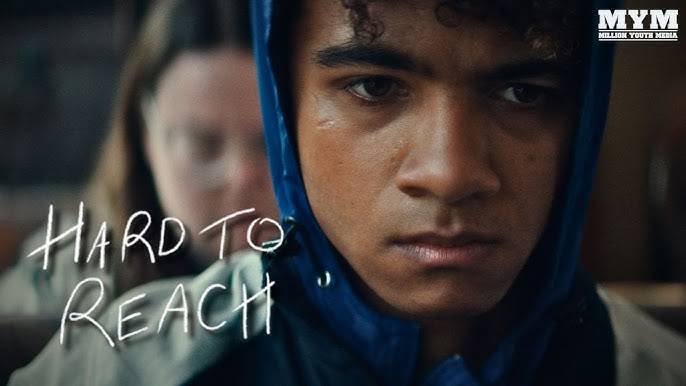Ted Lasso would not be the huge success it is today if it weren't for its cast. Because of the characters who surround him, the show's premise of an American football coach moving to London to coach soccer is much more vibrant. The show's supporting characters, such as Sam Obisanya, take center stage in Season 2. Toheeb Jimoh, a British actor, plays Sam, a teenage Nigerian right-winger for AFC Richmond. During the first season, Sam adjusts to being away from his family and country while finding his role within the organization. In Season 2, Sam establishes himself as a leader both within the team and on the show.
This season, Sam served as a medium to discuss a variety of important subjects, including sports activism, the delicate relationship between fathers and sons, the pressures of being an immigrant or the child of immigrants, and finding love in unexpected places. Jimoh is part of a Ted Lasso ensemble cast that earned the series four Golden Globe nominations for the 79th Golden Globe Awards, which will be held on Sunday, January 9. Jimoh spoke with Complex on the show's direction, his character's story, standing up for what you believe, and what he thinks about his character's romance with his boss, Rebecca Welton (Hannah Waddingham).
The show's first season won four Emmys and earned rave reviews from people all around the world when it premiered on Apple TV+ in August 2020, right in the middle of the COVID-19 pandemic. For many, it was a welcome respite from the harsh realities of life. The positive energy of the title character, as well as the great cast, delivered the feel-good, uplifting escapism that so many were looking for. Season 2 delves deeper into the characters, chipping away at their lighter veneer and unveiling their true selves. Coach Lasso (Jason Sudeikis) has a panic attack during a game, the team seeks counseling after a rare event, and viewers see how an unrestrained ego can badly effect a man via Nate (Nick Mohammed).
Some viewers were dissatisfied with how the show veered away from its comedic roots and instead focused on feelings and emotions that the audience was unprepared for. Jimoh says he's glad the show took this turn and that it was "never just a comedy," which he is correct. "[Mental health] is a difficult subject to discuss, especially when it's coming from a TV show that most people thought was a lighthearted, wholesome comedy," Jimoh says. "It's critical to discuss topics like these, especially in the sports world." I'm delighted we decided to go down this path. It was difficult at first, but people eventually grasped the concept."
Many of the challenges the characters face arise from their childhood connections with their parents, which can have long-term consequences if they aren't addressed. Ted Lasso delves at the father-son bond and how it influences a man's development as he grows up. "In Season 2, we really started to focus on the relationship, the parental position, and how it shapes your character, your morals, your views, and your integrity for younger people growing up." It was exciting to be able to demonstrate that, especially as a young Nigerian," the actor said. "Your male role models have a huge impact on how you deal with life, how you deal with problems, and how you exhibit vulnerability and anxiousness as a young man." Particularly in Jamie Tartt's relationship with his father and Sam's relationship with his father, the two are diametrically opposed. So that message is delivered between the two of us."
On the episode, Sam's tight relationship with his father has molded him into a confident, humble man with a strong moral compass. Jamie Tartt, played by Phil Dunster, has a tumultuous relationship with his father, which has a significant impact on his mature behavior. "Sam's relationship with his father is extremely important to him as a person. "A lot of what he does is to please his family, to please his father," the actor remarked of his character. "My father was the pillar of my youth, but I also had other male role models in my life that had a significant impact on my development as a person." The 24-year-old actor, like his character, understands the strain that immigrants and children of immigrants face in terms of success and the implications for them and their communities. "I was born in a foreign country, and my parents are immigrants." They moved to London from Nigeria when they were my age. So much of what I do in life is to repay them. They made so many sacrifices, worked long hours, and worked two jobs, and they are still doing so today. Because that's my lived experience, it was the greatest honor to be able to show it back on television."



